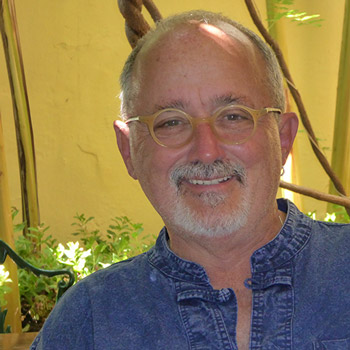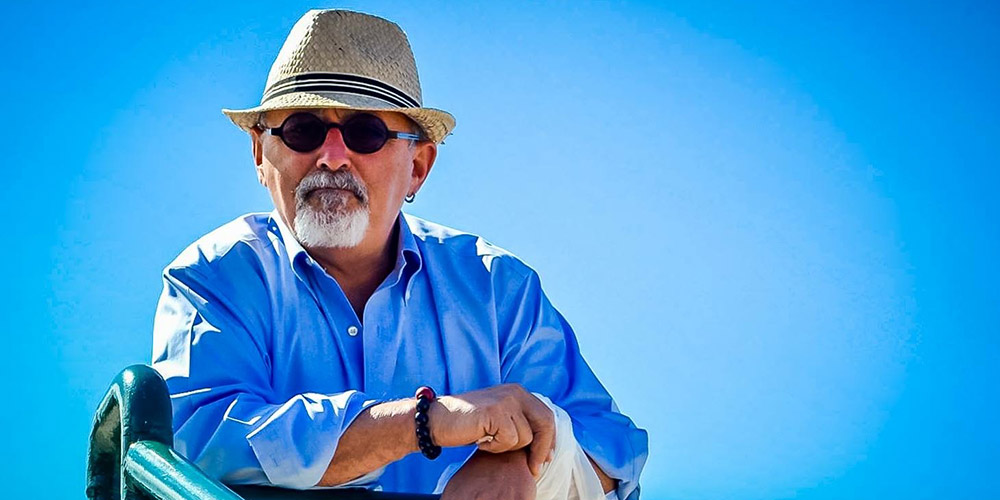Q&A with UH Maui College Emeritus Professor Vincent Linares
Tell us about yourself
I grew up in Connecticut in an Italian-Irish middle class neighborhood. I am Italian, Irish, Greek and Spanish by heritage and ethnicity. I attended a Catholic grade school, and then an excellent public high school where the arts were important.
My post-secondary education was varied as I attended several colleges and universities, and graduated with a liberal arts degree in 1968. I served in the Peace Corps for three years in Micronesia and then attended UH grad school.
I travel extensively, when time and money allow, and have also lived and worked in China, Japan, Micronesia, Malaysia, Thailand, Mexico, California, Connecticut and Washington, D.C. I have been awarded two senior teaching Fulbright Scholarships, the first to Sri Lanka to write a high school English textbook, and the second to Malaysia to train English language teachers.
I consider my professional career to have been very successful because of my tenacity, my upbringing, my drive, but especially because of the people in my life who throughout every stage of my evolution, guided and supported me with their talents, patience, professionalism and friendship. And equally important and sometimes not mentioned is the environment — Hawai‘i.
What role have the performing arts played in your life?

who has generously remembered UH
in his will.
Reading was also strongly encouraged, and some of my earliest memories are of orange crate bookshelves in the living room that held both books and vinyl records. The first thing you saw coming into our small first apartment was a stand-alone record player.
Therefore, the arts were an important part of my formative years, and have continued to be so throughout my life.
Teaching composition, literature and linguistics also added another strong dimension, since these subjects stressed the importance of communicating ideas through the written word as well as through music. The arts promote creative human expression in many formats, therefore, complementing and supporting the concepts and principles of my chosen profession as well.
Throughout my career I have been acting, directing and producing plays on Maui, while also serving as president of two Maui theater companies: Maui Academy of Performing Arts and Maui On Stage. I engaged in these professional and personal endeavors to ensure that my community has access to the open expression of creative ideas through different performing arts avenues.
The arts are food for the mind and soul and therefore as important to me as food for the body. Fortunately, I have been told that my acting allows both me and the observer many possibilities for mental and spiritual exploration. I see this as a gift I have been given to share so that others, like myself may also be impacted by the power of ideas through creative use of language.
I have been performing my one man play “Damien: The Leper Priest of Molokai” for 17 years throughout the islands, the nation, as well as internationally. More than 10,000 people have seen the play, heard the important messages within the words and by supporting the play, contributed more than $80,000 for nonprofits, food kitchens and community related projects.
Not a day goes by wherein I am not stopped by someone who shares their thoughts about the play, its important message about community, faith, unselfishly serving humanity, and how the play impacted their lives. This is the power of the arts and of the theater. I feel so blessed and fortunate to have been able to be a part of this creative endeavor.
What is your history with UH?
I first attended UH as a grad student in 1973-75, and was awarded an MA in applied linguistics. Immediately upon graduation, I was hired by Maui Community College, first as a part-time instructor to draft an ESL program for the college. In 1978 I was hired full-time and received my tenure in 1982. When I retired in 2010, I was a full professor.
Throughout my career I served on numerous systemwide committees, while also serving three terms as a board director for the University of Hawai‘i Professional Assembly. While I was recognized and awarded for my teaching expertise, I feel my most significant contributions to UH lay in my involvement with the creation of language and policy for the principles adopted and used to govern distance education for the university, as well as for my collaborative work with the initial Writing Intensive Program, and with the articulation and standardization of English 100 for the entire university.
I also served as chair of the UHMC Faculty Senate, and as co-chair of the Faculty Senate Council for the Community Colleges.
What motivates you to give to UH?
Looking back on my 36 years as a UH professor, I believe I had a very successful career as a classroom instructor and participant in many systemwide programs, initiatives and policy forming committees.
UH was my home, and while there I was able to evolve and grow professionally and personally – actually these two can’t be separated as they go hand in hand. I thrived in this vibrant, exciting academic environment, surrounded by a cadre of outstanding colleagues. While we faced constant and daunting challenges from far too many political and non-academic influences, the academic freedom and possibilities afforded us, fueled personal and professional excellence.
My gift is to ensure that future faculty and staff be allowed the same opportunities since programs and money for personal and professional staff development are never sufficient, while expectations for faculty to evolve are constant.
Why did you consider a second gift?
The second gift was to make stronger the first – insure that more money would be available for staff development. Without adequate staff development opportunities, you chance academic stagnation, a condition that is lethal for a strong, healthy and vibrant university.
What do you hope your gifts will accomplish?
Keep doors and possibilities for staff development open. Enrich peoples’ lives.
Questions? / More Information
If you would like to learn how you can support UH students and programs like this, please contact us at 808 376-7800 or send us a message.
